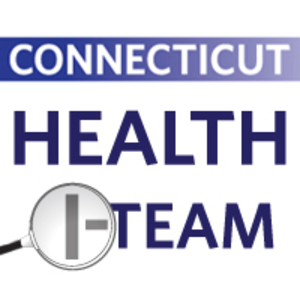By Lisa Backus
Recommend Tweet Email Print More
The Connecticut state Department of Public Health (DPH) will investigate physicians accused of spreading misinformation about COVID-19 and the vaccines designed to combat the virus if a complaint is filed, officials said.
Christopher Boyle, DPH spokesman, said that if the agency receives a complaint that a physician was spreading COVID-19 vaccine misinformation, the Practitioner Investigation Unit will investigate.
In July, the Federation of State Medical Boards warned physicians that they could face disciplinary action by a state medical board for spreading disinformation about COVID-19 vaccines.
DPH said that there is no mechanism for monitoring social media or other forms of media for doctors who are spreading misinformation. By state law, the public has no way of knowing if a physician is under investigation until a resolution to the complaint comes before the state Medical Examining Board months, or possibly years, from the filing of the complaint.
Joe Knickrehm, a spokesman for the Federation of State Medical Boards, said a lack of funding and personnel required to spot physicians who may be operating outside of medical standards during the pandemic is a problem occurring across the country.
“State and territorial medical boards in the U.S. operate largely on a system that is complaint-driven,” Knickrehm said. “Medical boards rely upon patients, members of the public, physician peers and other entities (such as hospitals and health systems) to report serious instances of misconduct to them. Boards often do not have the resources to actively monitor social media or traditional media for physicians spreading misinformation or disinformation and therefore rely on information they receive through formal complaints.”
But that hasn’t stopped medical boards in several states from disciplining physicians for distributing misinformation about COVID-19 to patients and the general public, Knickrehm said.
“We know a number of boards have taken disciplinary actions, and we have heard anecdotally from member boards that they are seeing an uptick in complaints about physicians generating or spreading COVID-19 misinformation and disinformation, and in some instances are carrying out investigations as a result,” he said. California and Oregon are among the states that have taken action.
Misinformation about vaccines became so acute this summer during efforts to vaccinate as many people as possible that U.S. Surgeon General Dr. Vivek Murthy issued a 22-page advisory on July 15 calling attention to the issue and outlining an action plan for consumers and others.
“Health misinformation is an urgent threat to public health,” Murthy said. “It can cause confusion, sow mistrust, and undermine public health efforts, including our ongoing work to end the COVID-19 pandemic. As Surgeon General, my job is to help people stay safe and healthy, and without limiting the spread of health misinformation, American lives are at risk.”
Murthy encouraged tech and social media companies to identify and avoid sharing vaccine misinformation on their platforms, calling their cooperation “critical to the long-term health of our nation.” He also asked physicians to talk with patients about their understanding of the pandemic and the vaccines and correct any misconceptions.
Two weeks after Murthy’s report was published, the federation issued a warning to physicians that they could be disciplined, including losing their license, if a med board determines they are spreading misinformation on COVID-19.
“Due to their specialized knowledge and training, licensed physicians possess a high degree of public trust and therefore have a powerful platform in society, whether they recognize it or not,” the statement issued July 29 said. “They also have an ethical and professional responsibility to practice medicine in the best interests of their patients and must share information that is factual, scientifically grounded and consensus-driven for the betterment of public health. Spreading inaccurate COVID-19 vaccine information contradicts that responsibility, threatens to further erode public trust in the medical profession and puts all patients at risk.”
The federation provides training and advocacy to more than 50 med boards throughout the country. Connecticut’s Medical Examining Board—made up of appointed physicians, lawyers, public members, and other professionals—meets about nine times a year to consider disciplines based on DPH investigations. The board has no funding or independent authority to hire staff.
The disciplines can range from a reprimand, a fine, probation or the revocation of a medical license.
During its Aug. 23 meeting, the medical board did not discuss the federation’s warning. The agency cannot reveal if it has received any complaints regarding physicians spreading misinformation about the vaccines by state law, Boyle said.
Support Our Work
The Conn. Health I-Team is dedicated to producing original, responsible, in-depth journalism on key issues of health and safety that affect our readers, and helping them make informed health care choices. As a nonprofit, we rely on donations to help fund our work.


